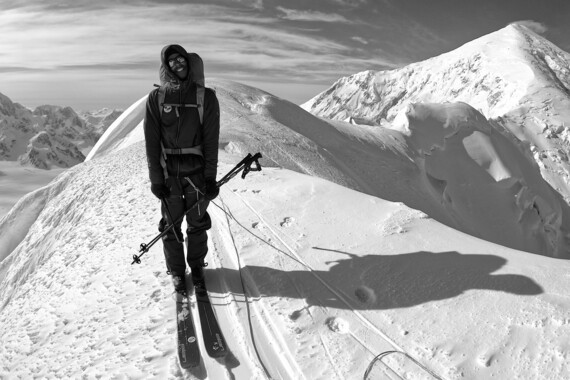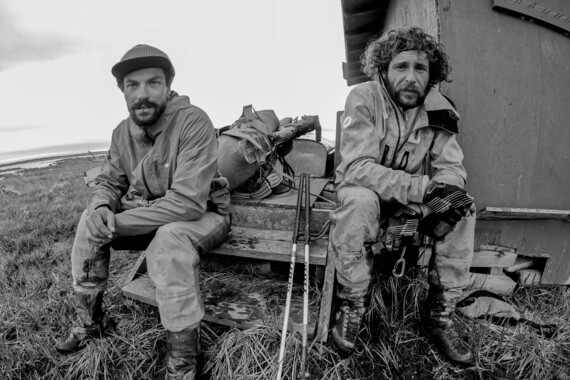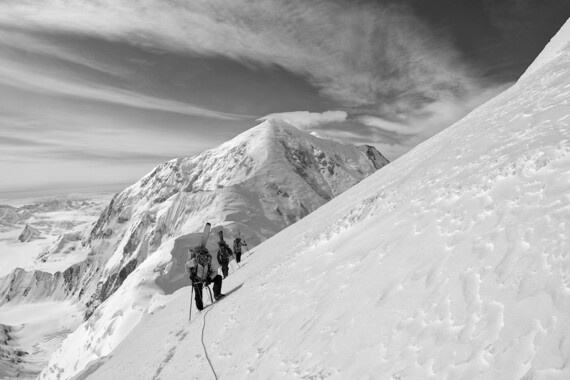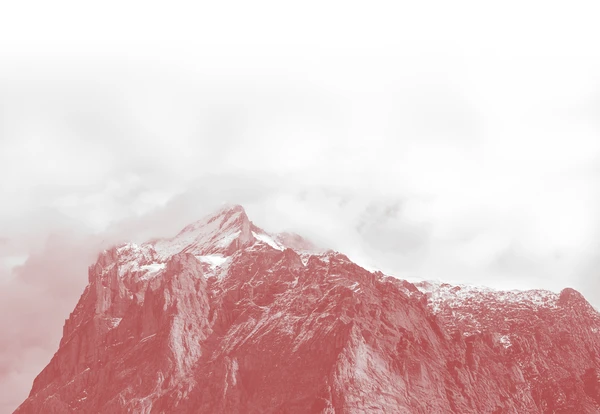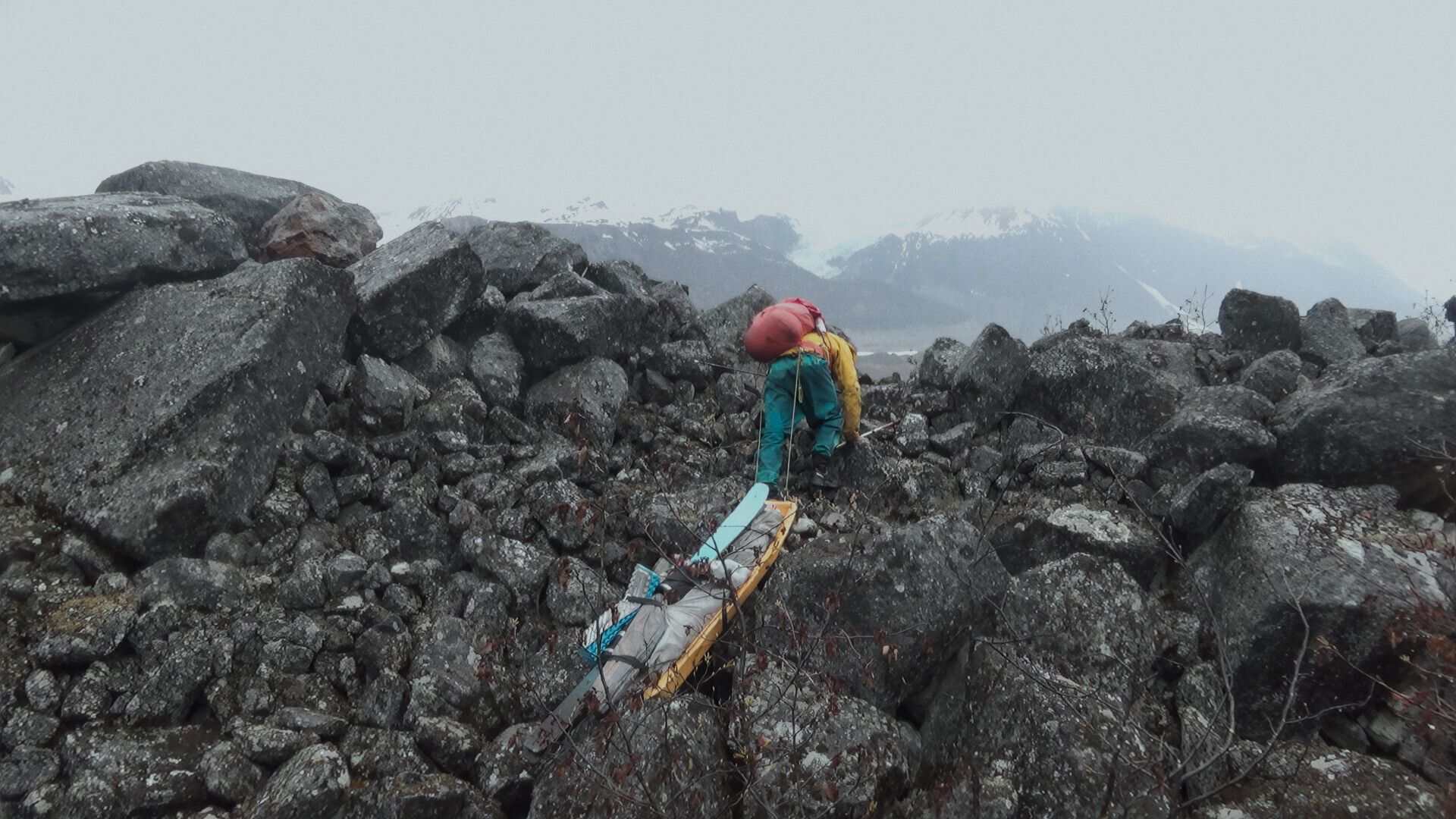
Where the wild ones went
Fifty days alone in Alaska. For Aurel Lardy, Hélias Millerioux, Alex Marchesseau, and Christophe Tricou, this expedition was a dream come true. But the Last Frontier had a few surprises in store for the four Frenchmen.
“No matter how difficult it gets—weather, break-downs, and other challenges—this team will make it to the end.” Aurel was sure of it, even in the middle of a storm on the climb up Denali. The funny thing was, he, Hélias, Alex, and Christophe had never actually been on an expedition together before.
The idea for their Denali traverse came from Alex, a mountain guide and instructor from Chamonix. He convinced Hélias, who had just returned from a ski expedition with Aurel to Kyrgyzstan, where the two had talked about a possible Alaska project. Christophe rounded out the team. With his experience as a skier, paraglider, wingsuit flyer, and sailor, the team finally had all the skills needed. Even more important than their collective skillset was their shared vision: to forge a deep human connection through adventure.
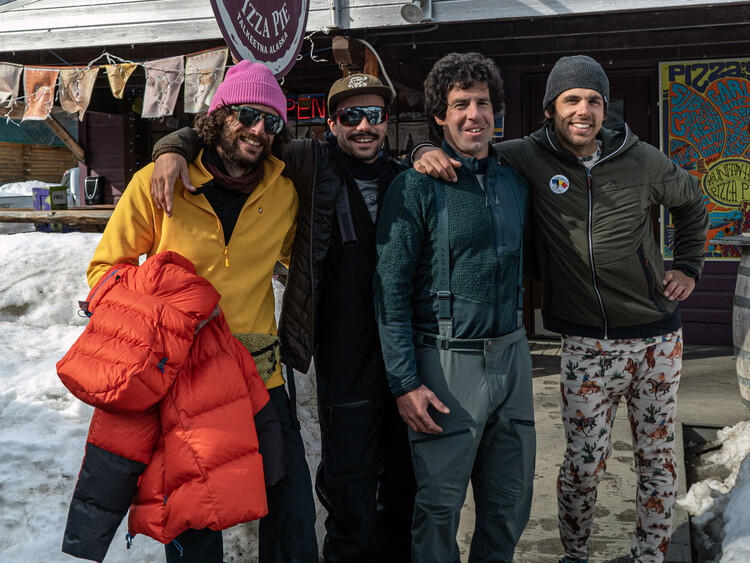
The number four wasn’t random; it was a strategic decision. With four, you can split into two pairs and cover each other’s backs. Tasks can be divided up efficiently, especially when it comes to setting up camp after a seemingly endless day. If one guy was too tired, the others simply picked up the slack. That security, and the trust it created, would prove crucial over the 50 days. And while Alex, Aurel, Hélias, and Christophe weren’t exactly lifelong friends, on an expedition of this scale, solidarity isn’t optional—it’s essential.
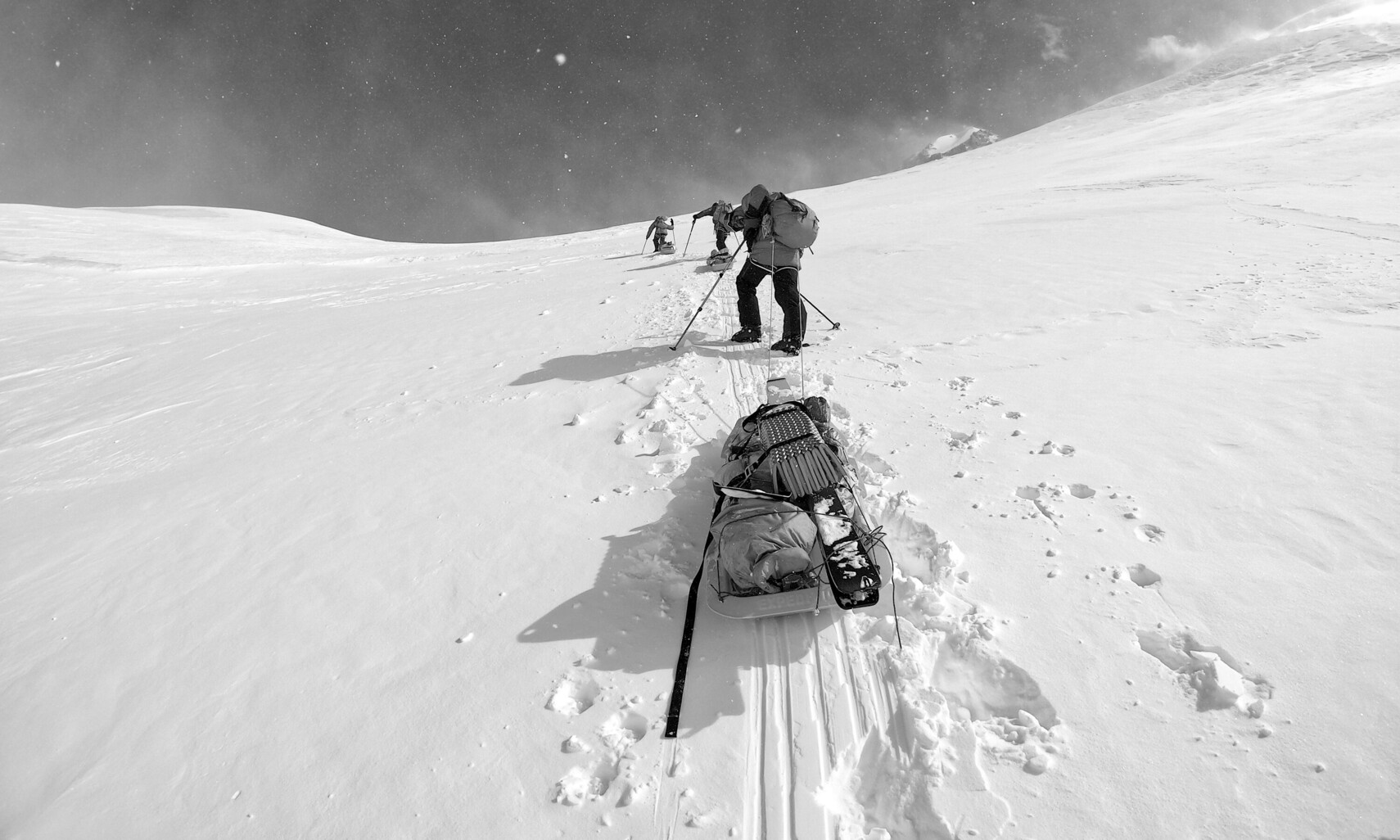
The highlight of the Alaska expedition was the ascent of the 5,304-meter Mount Foraker.
When they landed in Alaska in early May, the northernmost U.S. state greeted them with an unusually long and brutal winter. Relentless storms and temperatures far below average made the trip even tougher than expected.
Looking back now, Aurel remembers above all the constant daily discomfort—unforgiving cold, wet clothes, and the mental toll of living in those conditions, day after day. The team battled wind gusts topping 60 mph almost daily, in addition to the exhausting work of hauling gear through dangerous terrain. “We didn’t have a single comfortable night,” says Aurel. “But it’s those hard moments in the storm when you grow. And you never forget them.”
As the challenges intensified, so did the bonds between them. “I saw the others stomping through the snow like Christmas Santas,” Aurel recalls. “At that moment, they were the strongest people in the world to me.” When two of them fell into a crevasse and the team handled the situation with total composure, the trust among them became absolute.
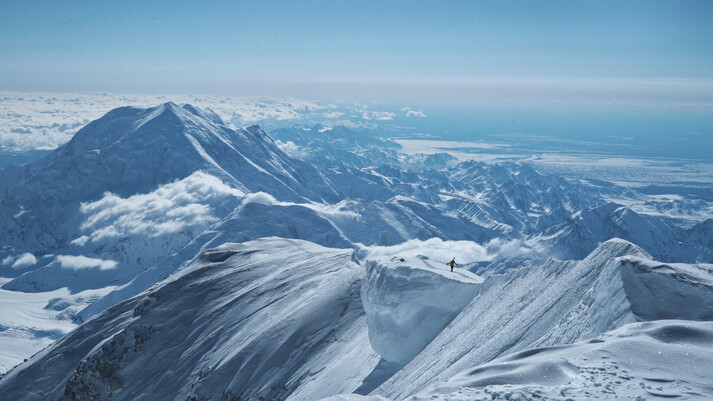
Alaska
Alaska is the largest and also the least densely populated state in the U.S. Half of its residents live in Anchorage, the destination of the Wild Days expedition. More than half of the state is made up of national forests, national parks, and protected areas.
Fifty days of complete self-sufficiency required meticulous planning. It also meant—something they would soon learn—accepting uncertainty. Whether it was wise to bring exactly 50 days’ worth of food was debatable. What if bad weather had dramatically extended the trip? Best not to think about it. Instead, they focused on the very real challenge of eating the same freeze-dried meals for a month and a half. A sign posted near their base camp offered a solution. Reading, “Coffee & hugs for food (too dirty for sex),” it soon drew in other climbers who took up the hug offer but mostly came to share drinks and trade food.
Above 16,000 feet, glitter on your cheeks guarantees good weather for a summit bid.
Alex Marchesseau
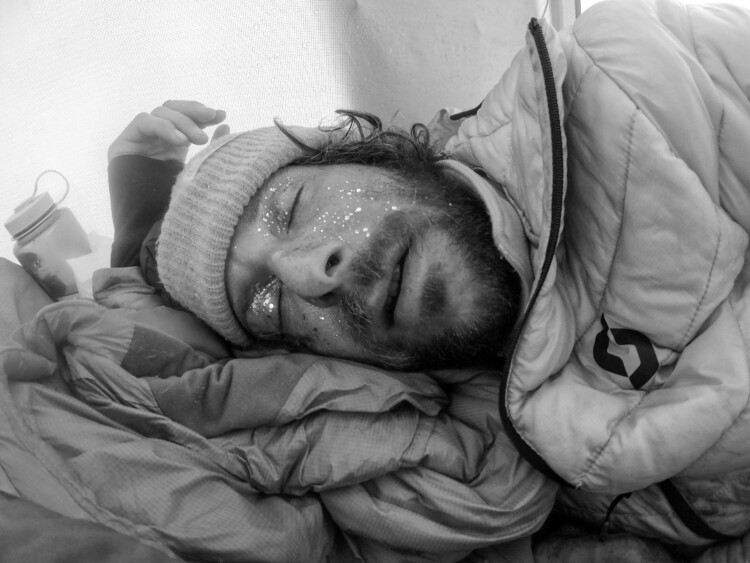
Another factor that significantly boosted the team's morale was a small tin of glitter, which the four used in hopes of upping their chance of reaching the summit. Alex swears by it: “Above 16,000 feet, glitter on your cheeks guarantees good weather for a summit bid. Below that, it’s useless.” (We have our doubts about this theory, but if you like, you can try it out on your next expedition!)
After 43 days in the mountains came the last and hardest part of the journey: returning to civilization—via river. That’s when having Christophe on the team really paid off. “At first it was pretty rough, but water is my element,” he says. “Sometimes I even towed the other boats to give the guys a break.”
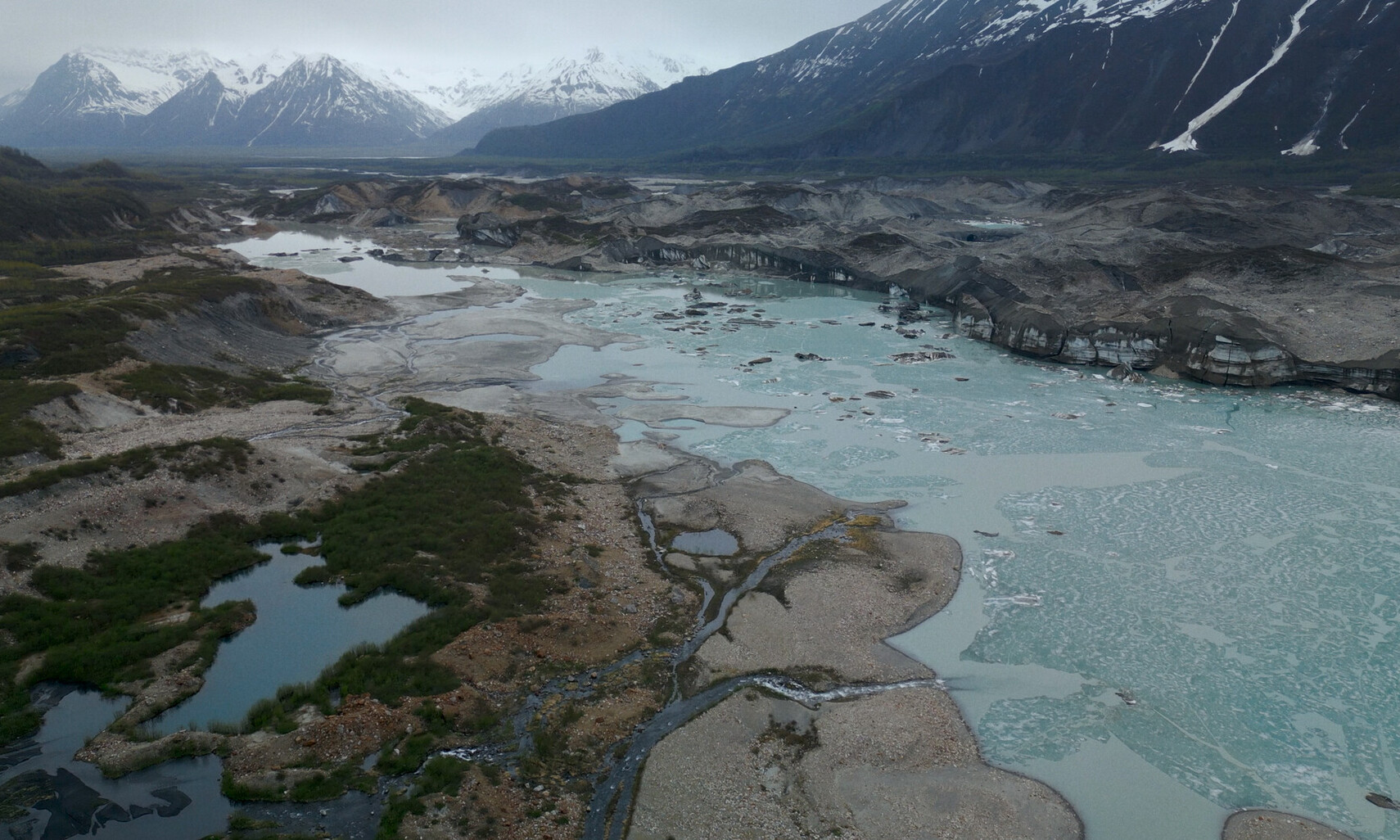
The increasingly tangled river delta posed a particular challenge for the mountaineers.
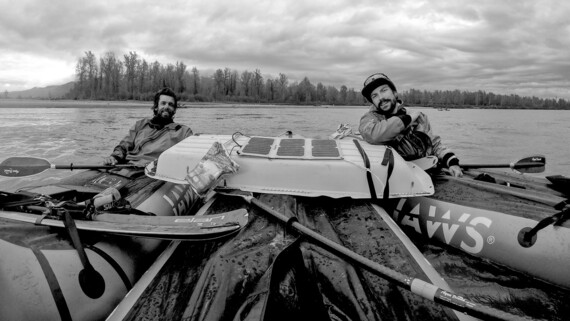
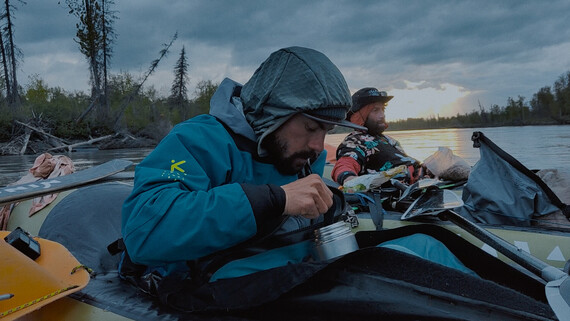
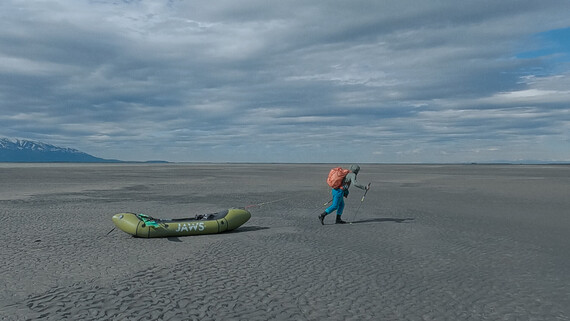
Sometimes I even towed the other boats to give the guys a break.
Christophe Tricou
They spent a full seven days on the river. Then, with just 48 hours left, they decided to split up. Alex and Christophe continued to navigate the increasingly confusing delta by boat, while Aurel and Hélias chose their route to Anchorage through marshy wetlands. By then, their sense of solidarity was so strong that everyone was fine with the plan.
When they finally returned to civilization, they felt like aliens. Other people were probably taken aback by their wild, rugged external appearance. But for Alex, Aurel, Hélias, and Christophe, the real transformation had been internal. Aurel sums it up for the group: “I no longer have the same view of things anymore—not of people, not of effort, and not of what commitment means. This adventure changed my life.”
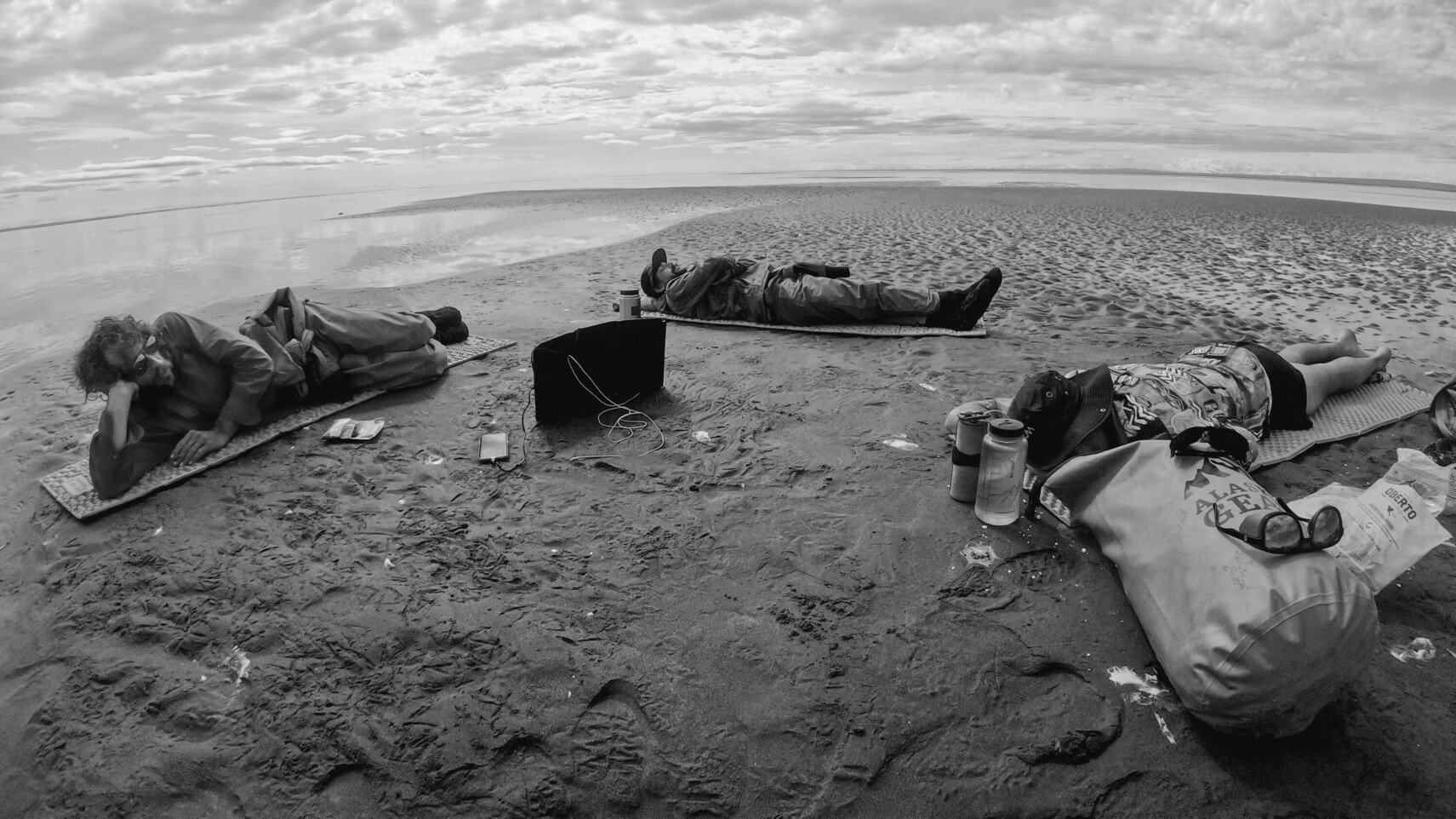
The four adventurers spent 43 days in alpine terrain and 7 days on the water.
